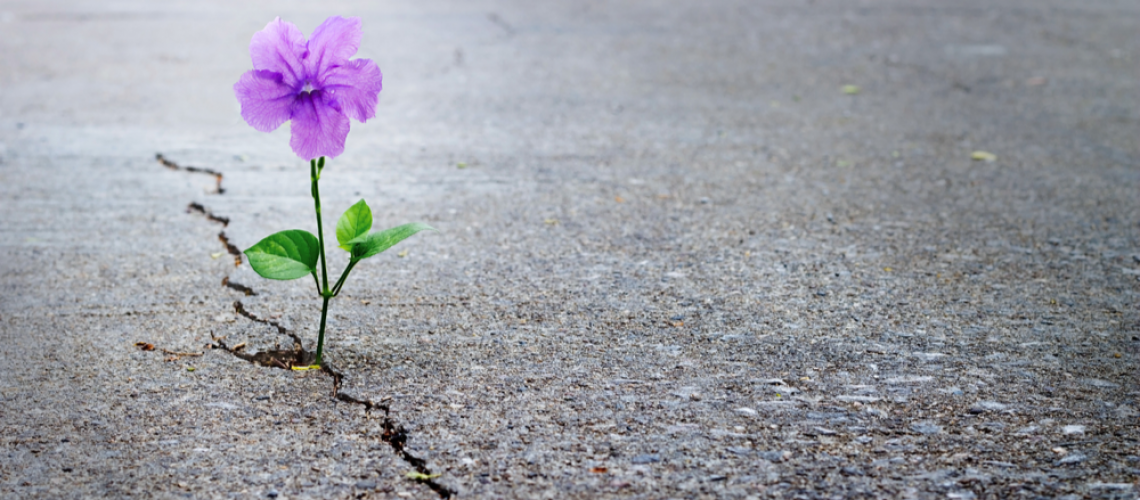Article Summary:
Many people feel empty inside, even if it’s hard to admit for some. This article contains the signs and causes of feeling empty—and what to do about it.
+++
The feeling may be virtually undetectable, but if we’d pause to notice we may discover an inner emptiness sometimes. A silent question about whether all we’re doing is really worth it.
We may be feeling hollow or numb, or living without passion or joy. Are we racing quickly but getting nowhere in a hurry?
“Part of the problem… is that everyone is in such a hurry…. People haven’t found meaning in their lives, so they’re running all the time looking for it. They think the next car, the next house, the next job. Then they find these things are empty, too, and they keep running.” -Mitch Albom, Tuesdays with Morrie
Such a feeling may be hard to admit. We may pride ourselves on being a go-getter, a producer. Maybe we’re a committed spouse or parent. Or a hard-charging professional or executive. But the feeling is what it is, regardless of whether we acknowledge or resist it.
We all feel empty sometimes. That’s common. The problem comes when it’s a persistent feeling that gnaws at us and that inhibits healthy relationships and our productive functioning in the world.
In our age of plenty, with grand technological advancements and material comforts for so many, many have warned about a crisis of meaning. The pandemic called the question about our relationship to work and our priorities.
The Signs of Feeling Empty
What are the signs of feeling empty inside? Here are eight of the most common signs:
- lacking motivation or enthusiasm for our life and work
- feeling disconnected from ourselves or our feelings
- feeling distant from others, with a tendency to withdraw from others or an inability to form close relationships
- feeling unfulfilled and purposeless
- lacking energy
- losing interest in activities that we once found enjoyable
- feeling like we’re a spectator to our life and not a full and active participant in it
- having a sense of dissatisfaction with our lives
Such feelings may get scrambled in cognitive dissonance because we don’t like to think of ourselves as the kind of person who has them. We may feel ashamed of such feelings, as if they’re beneath us, even though they’re natural and common.
We may also be trying to cover up feelings of emptiness with other things—things like entertainment, social media, gaming, overwork, shopping, gambling, food, sugar, alcohol, etc. (See my article, “Are We Numbing Our Lives Away?“) These, of course, are only temporary salves. They may work for a while, but then the emptiness returns.
At a deeper level, feeling empty can be a defense mechanism keeping us from re-experiencing trauma, or it can be a sign of depression. (If you suspect it may be one of these, check out the mental health and emotional support resources listed at the end of this article.)
Different Kinds of Emptiness
We should also distinguish between an inner emptiness stemming from disconnection and a kind of spiritual emptiness praised in Taoism and Zen Buddhism that allows us to free ourselves from unhealthy attachments to things like success, wealth, beauty, and certain desired outcomes. The idea is that even such good things can cause us suffering because they’re fleeting and beyond our control.
“Become totally empty / Quiet the restlessness of the mind /
Only then will you witness everything unfolding from emptiness”
-Lao Tzu (Laozi), ancient Chinese philosopher
We may want to empty ourselves of the illusion that painful things are permanent and fixed versus fluid and in flux.
We can also empty ourselves of our attachments to our thoughts. With mindfulness practice, we can merely observe our thoughts and let them come and go instead of conflating ourselves with our thoughts. (So it very much depends on the kind of emptiness we’re talking about, whether it’s an emptiness of distress or enlightenment.)
The Causes of Feeling Empty
There are many things that can cause the distressing feeling of emptiness. One of the most common causes is physical and mental exhaustion. This can come from many thing—often a combination of things—including insufficient sleep, poor self-care (e.g., neglecting regular exercise and movement and good nutrition and sleep habits), racing around to family activities, or a stressful job with a demanding boss. Such things can snowball into burnout.
In his wonderful little book, Let Your Life Speak, educator and author Parker Palmer describes a deeper form of burnout:
“Though usually regarded as the result of trying to give too much, burnout in my experience results from trying to give what I do not possess—the ultimate in giving too little! Burnout is a state of emptiness, to be sure, but it does not result from giving all I have: it merely reveals the nothingness from which I was trying to give in the first place.”
-Parker Palmer, educator and author
Feeling empty can also be caused by many other things, including:
- loneliness
- repressing our emotions
- losing ourselves in an all-consuming relationship that leaves precious little time for ourselves
- spending too much time on social media, streaming sites, or gaming
- feeling exhausted from mental rumination about painful thoughts and the associated negative self-talk
- suspecting that we may need a different job or career, or that we’re settling for something that’s just okay
- lack of clarity about our purpose, values, vision, or goals (see my related articles, “The Problem of Not Being Clear About Our Purpose” and “The Problem of Not Being Clear About Our Values”)
- losing touch with ourselves and our inner life
- living a divided life, with a lack of coherence between our inner and outer self, or living in ways that violate our core values or that don’t center us in our purpose
- lacking self-awareness (e.g., about our purpose, values, strengths, passions, and the traps we’re in)
- not having enough clarity about or movement toward our goals and dreams
At a deeper level, feeling emptiness can also come from experiencing trauma, with our mind and body wanting us to emotionally detach from the pain, thereby making us feel empty inside as we struggle to access our feelings.
According to Dr. Margaret Paul, psychologist and author, ultimately there’s only one root cause of feeling inner emptiness: a lack of love. She notes that it’s not a lack of someone else’s love, but rather a lack of love of ourselves, or what she calls “self-abandonment.” This often comes from an ego that draws the wrong conclusion from our experiences in the world, making us believe that we’re not worthy of love when in fact we are.
What to Do About It
Fortunately, there are many things we can do to address prolonged feelings of emptiness that inhibit our quality of life. Here are some practices and mindset shifts:
- stop ignoring the feeling of emptiness and acknowledge it, giving ourselves grace and not judging ourselves harshly for feeling that way, instead allowing the feelings to flow through us and then letting go
- resolve to identify and address the root causes of our pain and anxiety, since avoiding them only brings a temporary reprieve and ends up harming our emotional well-being over time
- notice when we feel empty and what we’re doing and with whom, so we can avoid these emptiness triggers
- reframe our mindset from a sense of dread that we’re flawed to a helpful signal that there’s something in our life that needs attention
- figure out what self-care practices work best for us and double down on those
- make a list of fun, engaging, and fulfilling activities and people and build them into our schedule
- reinvest in learning and growing (e.g., via courses, books, podcasts, TED talks, etc.)
- learn a new skill or develop a current skill further
- engage in a creative practice such as songwriting or dance
- limit our time on social media, email, streaming, gaming, etc.
- reach out to family, friends, and loved ones, or make new friends
- get clarity about our purpose and core values, then creatively building them into our life and work
- write down our goals, aspirations, and vision of the good life to give us a sense of where we’d like to go in our life
- seek people and situations that help us feel loved, supported, and whole (and avoid people and situations that make us feel empty)
- recruit an accountability partner to help us do things that fill us up or challenge us
- form a small group where we can be open and vulnerable and lean on each other for support
- establish a daily spiritual practice, such as prayer, worship, contemplation, reading, meditation, or yoga
- stop avoiding responsibility for our current situation
- get in the habit of journaling for self-expression and self-awareness or writing a gratitude journal (see also this list from Lifehack of 32 things to be grateful for)
- seek professional help from a therapist our counselor, if needed (see the resources listed at the end of this article)
The point is not to do all, or even most, of these things. Rather, the point is to start with one or two that seem most promising or intriguing and build from there, paying attention to what’s most helpful and what isn’t.
Ultimately, feeling empty may signal that we’re becoming more aware and conscious of what’s important in our lives—and the deeper experiences we may be missing. That can be a very good thing if we have the foresight and courage to do something about it.
Reflection Questions
- Are you feeling empty inside?
- Is it an occasional feeling or something that’s been persistent and that has started to detract from your life and work?
- If the latter, what will you do about it?
Tools for You
- Traps Test (Common Traps of Living) to help you identify what’s getting in the way of your happiness and quality of life
- Quality of Life Assessment to help you discover your strongest areas and the areas that need work and then act accordingly
- Personal Values Exercise to help you clarify what’s most important to you
- Passion Probe to help you find the things that consume you with palpable emotion over time
Related Articles
- “The Trap of Neglecting Our Inner Life”
- “The Trap of Losing Yourself”
- “The Mental Prisons We Build for Ourselves”
- “Are We Numbing Our Lives Away?“
- “Time to Check the Path You’re On?“
- “Are You Living a Divided Life?”
- “Breaking the ‘Trance of Unworthiness’”
- “The Trap of Dissatisfaction”
- “Burnout and the Great Resignation”
- “Golden Handcuffs: Stuck in a Job You Don’t Like?”
- “Tired of Settling?”
- “Personal Resilience and Self-Care Practices in Hard Times”
- “Why Happiness Is the Wrong Goal”
- “The Problem of Going It Alone”
- “The Trap of Not Being Grateful for What We Have”
- “On Spirituality and the Good Life“
- “Is This It? On the Disappointment of Success“
- “The Most Common Myths about Happiness“
Postscript: Inspirations on Emptiness
- “Formerly, his heart had been as a locked casket with its treasure inside; but now the casket was empty, and the lock was broken.” -George Eliot, English novelist
- “Feeling empty is often a sign that you’re disconnected from something—whether that be your soul, a lack of meaning/purpose, or your emotions.” -Aletheia Luna, writer and educator
- “You’re an interesting species. An interesting mix. You’re capable of such beautiful dreams, and such horrible nightmares. You feel so lost, so cut off, so alone, only you’re not. See, in all our searching, the only thing we’ve found that makes the emptiness bearable, is each other.” -Carl Sagan
- “The hard work of sowing seed in what looks like perfectly empty earth has, as every farmer knows, a time of harvest. All suffering, all pain, all emptiness, all disappointment is seed: sow it in God and he will, finally, bring a crop of joy from it.” -Eugene Peterson, A Long Obedience in the Same Direction
“I have met too many people who suffer from an empty self. They have a bottomless pit where their identity should be—an inner void they try to fill with competitive success, consumerism, sexism, racism, or anything that might give them the illusion of being better than others. We embrace attitudes and practices such as these not because we regard ourselves superior but because we have no sense of self at all. Putting others down becomes a path to identity, a path we would not need to walk if we knew who we were…. as community is torn apart by various political and economic forces, more and more people suffer from the empty self syndrome.”
-Parker Palmer, A Hidden Wholeness
Resources for Mental Health and Crisis Prevention
Consult a mental health professional if you believe it may be depression or if your feelings are debilitating and not merely occasional. Here are some support resources:
- BetterHelp (online network of licensed therapists)
- SonderMind (connecting people with therapists)
- 7cups (a free help network)
- Mental Health Mates (U.K. support groups)
- Befrienders Worldwide (helplines outside the U.S.)
- 988 Suicide and Crisis Lifeline (text 988 or call 1-888-628-9454)
- Crisis Text Line (text “HOME” to 741741)
- Substance Abuse and Mental Health Services Administration (SAMHSA) National Helpline, 800-662-HELP (4357)
- Alcoholics Anonymous
- Narcotics Anonymous
Featured image source: Adobe Stock
+++++++++++++++++
Gregg Vanourek is a writer, teacher, TEDx speaker, and coach on personal development and leadership. He is co-author of three books, including LIFE Entrepreneurs: Ordinary People Creating Extraordinary Lives (a manifesto for living with purpose and passion) and Triple Crown Leadership: Building Excellent, Ethical, and Enduring Organizations (a winner of the International Book Awards). Check out his Best Articles or get his monthly newsletter. If you found value in this article, please forward it to a friend. Every little bit helps!








